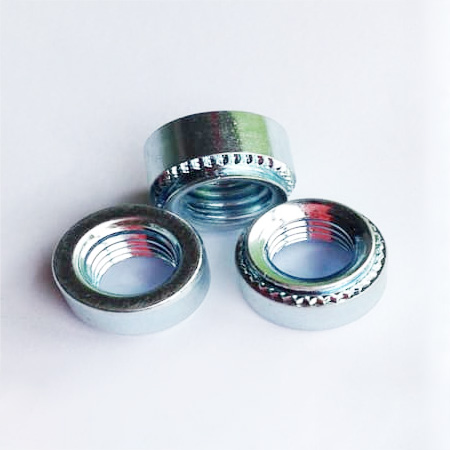Choosing the appropriate Self-Clinching Nuts involves considering various factors to ensure a secure and effective fastening solution for your specific application. These factors help determine the type, size, material, and features of the self-Clinching Nuts that best suit your needs. Here's a step-by-step guide to help you make the right selection:
1. Application Requirements:
Identify the specific requirements of your application. Consider factors such as load-bearing capacity, torque resistance, vibration resistance, and environmental conditions.
2. Material Thickness:
Measure the thickness of the metal sheet or panel where the self-clinching nut will be installed. Different Self-Clinching Nuts are designed for specific material thickness ranges, so ensure the nut is compatible with your application.
3. Type of Self-Clinching Nut:
Choose the appropriate type of self-clinching nut based on your application's needs. Consider factors like accessibility (blind or through-hole installation), flush or protruding design, thread-locking requirements, and whether a stud or standoff is needed.
4. Material Compatibility:
Select a self-clinching nut made from a material compatible with the base material. Common materials include steel, stainless steel, aluminum, and brass. Ensure compatibility to prevent galvanic corrosion or other material-related issues.
5. Load Capacity and Torque Requirements:
Determine the expected load on the fastened joint and the required torque resistance. If the joint will experience heavy loads or require consistent torque, consider high-strength or locking self-clinching nuts.
6. Vibration Resistance:
If the application will be subjected to vibration or dynamic forces, consider using self-clinching nuts with locking features, such as nylon or metal inserts, to prevent thread loosening.
7. Space Constraints:
If space is limited, opt for miniature or reduced-profile self-clinching nuts to ensure a secure fastening while minimizing the footprint.
8. Assembly Process:
Consider the assembly process and equipment available. Some self-clinching nuts may require specific tools or machines for installation, so ensure you have the necessary resources.

By systematically evaluating these factors, you can select self-clinching nuts that offer optimal performance, reliability, and longevity in your application. Consult with fastener suppliers or manufacturers if you have specific questions or if you're unsure about the best choice for your particular use case.